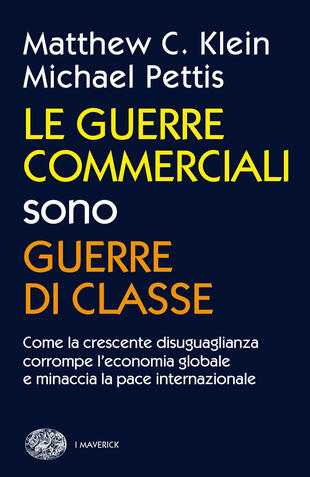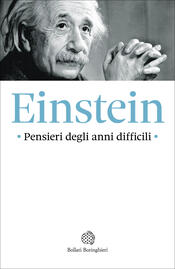

Le guerre commerciali sono guerre di classe. Come la crescente disuguaglianza corrompe l'economia globale e minaccia la pace internazionale
Acquistalo
Sinossi
Le controversie commerciali sono generalmente intese come conflitti tra paesi con interessi nazionali concorrenti ma, come dimostrano Matthew C. Klein e Michael Pettis, spesso sono il risultato inaspettato di scelte politiche interne volte a servire gli interessi dei ricchi a detrimento dei lavoratori e dei ceti piú poveri. I due autori fanno risalire le origini delle guerre commerciali odierne alle decisioni prese da politici e imprenditori in Cina, Europa e Stati Uniti negli ultimi trent'anni. In tutto il mondo, i ricchi prosperano mentre i lavoratori non possono piú permettersi di acquistare ciò che producono, hanno perso il lavoro o sono stati costretti a indebitarsi fino al collo. Sfidando i punti di vista tradizionali, Klein e Pettis, in questo saggio acclamato dalla critica, ci offrono un racconto coerente su come le lotte di classe causate dall'aumento della disuguaglianza siano una minaccia per l'economia globale e la pace internazionale, proponendo infine delle soluzioni praticabili. «Una lettura obbligata. Klein e Pettis, due dei più acuti commentatori dell'economia globale, hanno scritto un'imprescindibile analisi di come la disuguaglianza interna e i conflitti internazionali siano interconnessi, e offrono una risposta alle crisi della globalizzazione».
- ISBN: 8806249223
- Casa Editrice: Einaudi
- Pagine: 300
- Data di uscita: 05-10-2021
Recensioni
This book deserves a mass-market push that it seems to not be getting. Instead, it's probably being read by people like me who are already familiar with the arguments from Pettis's writing but want it in book length. In terms of difficulty for the laymen, it lies somewhere between a book digestible
Wealth inequality abroad causes wealth inequality domestically. I do not have a strong business or economic background and I struggled through the first half of this book with some dense economic history that was over my head. However, by the end of the book, I started to see the light at the end of Leggi tutto
This is basically an exercise in balance of payments accounting, with some financial history thrown in. The main thesis is that the functional distribution of income determines savings rates, which determine the current account balance, and that political economic forces which have redistributed inc Leggi tutto
A refreshing book with some unusual arguments: 1. Trade wars happen because manufacturing jobs have moved from advanced to developing countries such as China and Mexico. Trade unions become powerless. Blue collared workers lose their jobs. Poor people overdose themselves with opioids or commit suicid Leggi tutto
If you read enough debates about the poor pay practices of various big box retailers, a simple question eventually comes up. “If you don’t pay your workers more than a minimal wage, how are they going to be able to afford the stuff you sell?” That is a good place to start in considering “Trade Wars Leggi tutto
You may be forgiven if you think from reading the title that this is a Marxist analyst of international trade. It isn't. Actually, it doesn't even mention Marx, and uses the famines under Stalin and Mao as illustration for the central thesis of the book. This thesis can be summarized as follows. First Leggi tutto
The word of 2025 is definitely going to be tariffs! (Sorry, I promise no more assaults on your eyeballs by terribly edited overused memes) Therefore, it is with great interest I ordered this book, hoping it would tell me a bit more about how to think about this whole trade war thingy from an economis Leggi tutto
Świetna książka, szczególnie dzisiaj. Warto po nią sięgnąć, żeby dowiedzieć się, jaka szkoła myślenia stoi za tym, co robi teraz Donald Trump (i dlaczego jej diagnozy są nietrafione). Jedna z ważniejszych książek o globalizacji ostatnich lat.
Citazioni
Al momento non ci sono citazioni, inserisci tu la prima!























